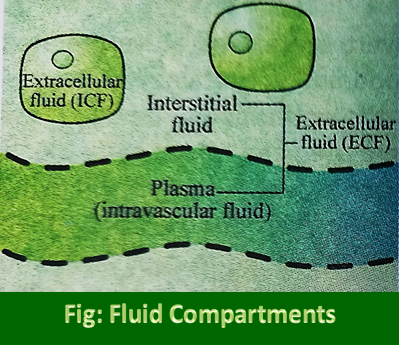Body Fluid Compartments:
Body fluids can be described in terms of their specific fluid compartment, a location that is largely separate from another compartment by some form of physical barrier.
- Intracellular Fluid (ICF)
- Extracellular Fluid (ECF)

Intracellular Fluid:
This compartment is the system that includes all fluid enclosed in cells by their plasma membranes. The ICF lies within cells and it is the principal component of the cytosol/cytoplasm. The ICF makes up about 60% of the total water in the human body. This fluid volume tends to be very stable because the amount of water in living cells is closely regulated.
Extracellular Fluid:
It surrounds all cells in the body. The ECF accounts for the other one-third of the body’s water content. Approximately 20% of ECF is found in blood plasma. Extracellular fluid has two primary constituents: the fluid component of the blood that is called plasma and the interstitial fluid (IF) that surrounds all cells, not in the blood.